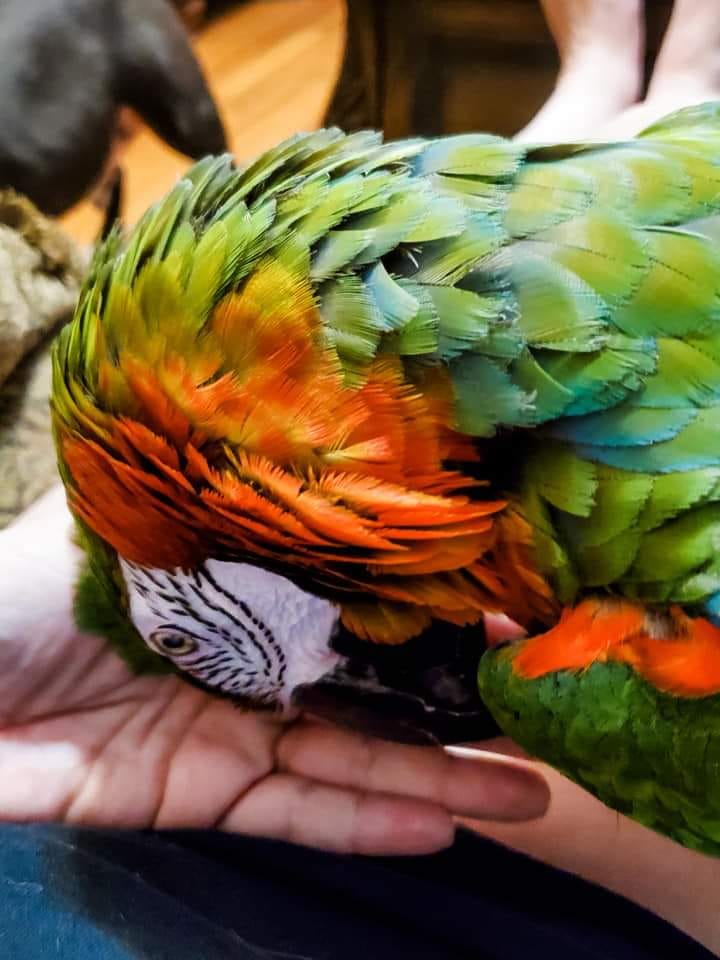Dealing with Hormones
- Or - My Bird is Driving Me Crazy!
IS YOUR BIRD DRIVING YOU CRAZY?
It’s that time of year again! A time when a birds behavior is RULED by hormones! Are your birds wandering the floor? Checking out cupboards, closets, boxes, and anything else that could prove to be a possible nest site? Any little, dark cubby hole will do! Are your birds making a lot more NOISE these days? Maybe shredding newspapers, toys, and anything else they can get their little beaks on?
Don’t despair - it’s only natural and this too shall pass. Keep in mind that your birds behavior is driven by the call of nature - the need to nest! You may notice an increase in vocalization (screaming!), irritability or even downright aggression! They may be more territorial about their cage, food dishes and toys.
The answer my friend is NOT to get a mate or friend of the opposite sex for your bird. You’ll only compound the problem. Most people have no idea how much work is involved in breeding and raising birds. You don’t have to resort to selling your bird as a breeder either. If your bird is a good companion most of the time - chances are, he / she will not prove to be a good breeder. By making some simple adjustments to your birds daily life you CAN all get along and get through this difficult period.
First and foremost - make sure your bird is getting 11-12 hours of DARKNESS per night. Amount of sleep - like afternoon naps won't help. Lengthening days and increased amounts of artificial light will cause a bird’s reproductive organs to increase in size, which in turn triggers a significant increase in hormonal activity. By limiting the amount of daylight and / or artificial light the bird receives, you can turn this situation around. If you cannot sufficiently darken the room the bird is in, then put a dark cover over the cage.
Make some changes in your birds DIET. A diet rich in protein and fat, and or a diet that includes soft, warm foods, tells a bird that conditions are right for making and feeding babies. COOL soft, cooked foods to room temperature before feeding. LIMIT high protein foods like beans, corn, NUTS, cheese, meat, etc. If you feed a high potency, pelleted diet with a high protein content, cut back a bit on the amount. Offer instead more fresh vegetables, greens, and of course a bit of fruit.
You may be doing things to encourage undesirable, hormone related behavior without even realizing it! If stroking your birds back or petting them under the wings causes them to pant, regurgitate for you or make strange sounds, then at least for now - stop! By stimulating your bird in this manner, you are sending the wrong message, confusing your poor feathered friend.
If your bird is acting overly aggressive and / or dominant, a good wing trim will help considerably. Most importantly - Keep their mind off the idea of nesting by keeping them BUSY! Maintain your own sanity and the love you have for your favorite feathered friends by making sure to provide an ever-changing assortment of toys to destroy!